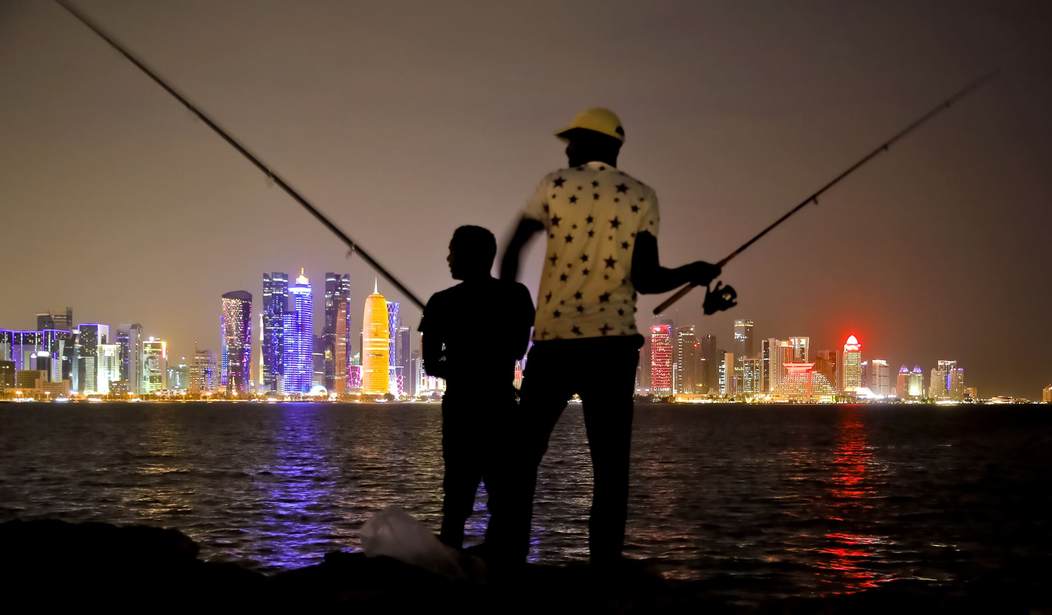If you aren’t white, you may not be able to go way outside.
At least, that appears to be the belief of a North Carolina State University professor.
KangJae “Jerry” Lee — of the school’s College of Natural Resources — recognizes the racism keeping you from enjoying the great outdoors.
Cultural differences, he asserts, can’t explain why there aren’t more black people fishing, hunting, and hiking.
Also an insufficient excuse: income disparity.
The instructor laments America’s adventure/nature gap, but he’s bulls-eyed the culprit: systemic racism.
Wichita’s KAKE recently jawed it up with Jerry on the lack of outdoor equity.
Per the ABC affiliate’s article, the “lack of diversity in outdoor recreation has become a hot topic in the White-dominated space.”
Indeed:
In the United States, outdoor recreation and Whiteness have long gone hand-in-hand.
Although national parks don’t record the races of visitors, census statistics — the write-up reports — “don’t exactly paint the most inclusive picture.”
White Americans vastly outnumber people of color in outdoor activities like fishing, hunting and wildlife watching, according to 2016 data from the Census Bureau, and numerous studies show that people of color are less likely to use public parks and outdoor recreation compared to White Americans.
If you’re ready to review the reasons, Jerry suggests starting with structural racism:
“If we start connecting the dots, the issue becomes excruciatingly clear that historical institutional racism has banished people of color from the great outdoors.”
So how did, in the words of KAKE, the “outdoors became racialized”?
Like any compelling story, it involves romance:
Back when the Pilgrims first arrived in North America, the reverence seen for the outdoors today did not exist, Lee told CNN. The wilderness was viewed as a dangerous place, something that needed to be tamed and cultivated to survive, he said.
But that changed in the 1800s, when urban White elites began to romanticize nature, viewing it as a wholesome environment (think of Walt Whitman and Henry David Thoreau, who were both writers at the time).
With that romanticization, came racialization, according to Lee.
Jerry asserts some folks have considered cities…to be dirty:
“(Some White elites saw) the urban environment as dirty, unhealthy, filled with lots of immigrants and people of color, whereas green spaces were clean, quiet and for White people.”
Fortunately, of course, cities are clean — and popular places to camp (Language Warning):
In fact, urban environments occasionally host naturism:
Woman Runs Naked Down Streets of Downtown LA – With a Dead Rat in Her Mouth https://t.co/zu0I0VI2A0
— RedState (@RedState) March 19, 2020
Back to the professor, the myth of unclean cities’ propagator — AKA “the environmental movement” — had “close ties to eugenicism.”
Concerning early conservationists:
“They had no interest in serving people of color. Some of them even viewed parks and outdoor recreation as a tool for maintaining White supremacy, and believed White Americans could cultivate tough and boisterous characteristics in the outdoor environment.”
Fast-forward to the ’50s:
In 1952, while there were 180 state parks in nine southern states available to White people, there were only 12 for Black people, according to Lee’s research.
It’s easy to imagine Jim Crow laws shamefully keeping black Americans out of parks. But what’s happened since desegregation?
Trends nowadays — of lower participation by people of color in outdoor recreation — reflect much of this prior racist history.
Jerry’s got it pegged:
“An important question we need to ask in this argument is why are Black and Hispanic people experiencing higher poverty rates, if money is such an important aspect? The answer is racism.”
So many answers, it appears, are.
In just the last six months, all of the following have been bashed as bigoted:
In other words, the country has a lot to iron out.
As for outdoor activities, how is wicked whiteness impeding the modern movement of nonwhites who hanker for a hike and fawn over fishing?
Here’s a mouthful from KAKE:
[C]onversations about who gets to enjoy and have access to the outdoors remain top of mind as a number of people call for dismantling settler colonialist and racial capitalist ties (that) outdoor recreation and the industries associated with it have maintained by erasing contributions of Indigenous people and people of color.
Jerry has some ideas of how to rectify such racism…
[H]e’d like to see more changes from the top, both by hiring more people of color in positions of power and by highlighting contributions made by people of color in cultivating the great outdoors.
As for “people of color” in outdoorsman history, KAKE serves up something savory:
Many people…may not know the role of Charles Young and the Buffalo Soldiers, who did significant work in maintaining national parks, and Black members of the Civilian Conservation Corps, who built and renovated many state and national parks at a time when they weren’t legally allowed to visit them.
Jerry hopes the word can spread:
“Unfortunately these histories are largely neglected, so highlighting this history by people of color, I think it’s extremely important. I think that will be an effective way to dispel common misconceptions.”
Let hope be a beacon.
And while we look toward a less racist outdoor future, at least one college has tried to light the flame:
Ivy League School Offers Rock Climbing Class for Everyone But White Students
https://t.co/KnUY7rgXOg— RedState (@RedState) February 28, 2021
-ALEX
See more content from me:
Girl Power, Be Gone: All-Female School Abandons ‘She’ and ‘Her’ for Something More ‘Inclusive’
HOV Negative: New York MTA Manager Gets Caught Driving With an Inflatable Doll
University Paper Fires Writer, Orders Bias Training After Nonwhite Student Is Misnamed
Find all my RedState work here.
Thank you for reading! Please sound off in the Comments section below.













Join the conversation as a VIP Member